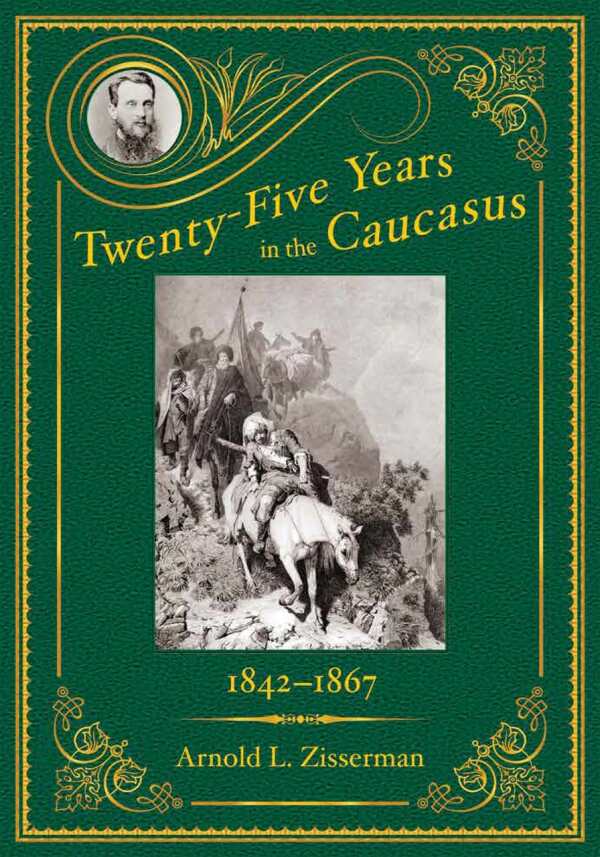Twenty-Five Years in the Caucasus
1842-1867
Twenty-Five Years in the Caucasus is an energetic memoir that offers an intimate look at life as a nineteenth-century Russian army officer.
Arnold L. Zisserman’s absorbing Twenty-Five Years in the Caucasus is invaluable for its first-person insights into the Caucasian War.
Lieutenant Zisserman served as a Russian soldier during the latter half of the decades-long Caucasian War. In this second volume of his voluminous wartime memoirs, Zisserman documents every minute detail of life in the Caucasus, from the barren terrain to the local customs to the tedium of camp life between battles. As he moves from posting to posting, he overcomes his initial self-doubt and achieves great personal success and satisfaction in helping Russia conquer the Caucasus.
Although it picks up from where the first volume left off, this portion of Zisserman’s story can stand alone. His memoirs, originally published in Russia in 1879, are garrulous and impassioned. Zisserman’s lengthy service in the Caucasus involves all sorts of dangers, from the enemy’s unpredictable sneak attacks to misadventures in tea brewing. He is alternately enchanted by and beleaguered by the terrain: the Ossetian sunsets are nothing short of magical, while the endless windstorms in Chir-Yurt drive him to seek escape as soon as possible.
Zisserman is an enthusiastic narrator. He throws himself from topic to topic, sometimes stopping in the middle of a story to interpolate historical context or excerpts from official reports. He minces few words when it comes to expressing his opinions about his commanding officers, enemy combatants, and fellow soldiers. His profiles of them are sometimes unflattering and sometimes funny, but always honest. He is equally forthcoming in his praise—and critiques—of Russian military strategy, bluntly pointing out what he believes to be serious shortcomings in his superiors’ approach to the war.
Zisserman’s critical thinking only extends so far, however. He holds a low opinion of many of the native Caucasians, often referring to them as “barbaric” and “savage.” And, with one notable exception, he has no compunction about killing as many people as may be necessary to secure the Caucasus for Russia. He describes the willful destruction of villages and forced relocations in a matter-of-fact tone. To Zisserman, this is just another part of the job.
Maps of Zisserman’s postings allow for basic tracing of his route throughout the Caucaus. Artwork, much of it contemporary, gives an intriguing visual glimpse of the people and places he meets on his travels. Extensive appendices and end notes further flesh out Zisserman’s world. The narrative ends in 1856, and it is unknown if subsequent volumes exist. Their absence only increases the value of the existing material, which is a unique work that will fascinate those who appreciate history and travel.
Twenty-Five Years in the Caucasus is an energetic memoir that offers an intimate look at life as a nineteenth-century Russian army officer.
Reviewed by
Eileen Gonzalez
Disclosure: This article is not an endorsement, but a review. The publisher of this book provided free copies of the book and paid a small fee to have their book reviewed by a professional reviewer. Foreword Reviews and Clarion Reviews make no guarantee that the publisher will receive a positive review. Foreword Magazine, Inc. is disclosing this in accordance with the Federal Trade Commission’s 16 CFR, Part 255.

